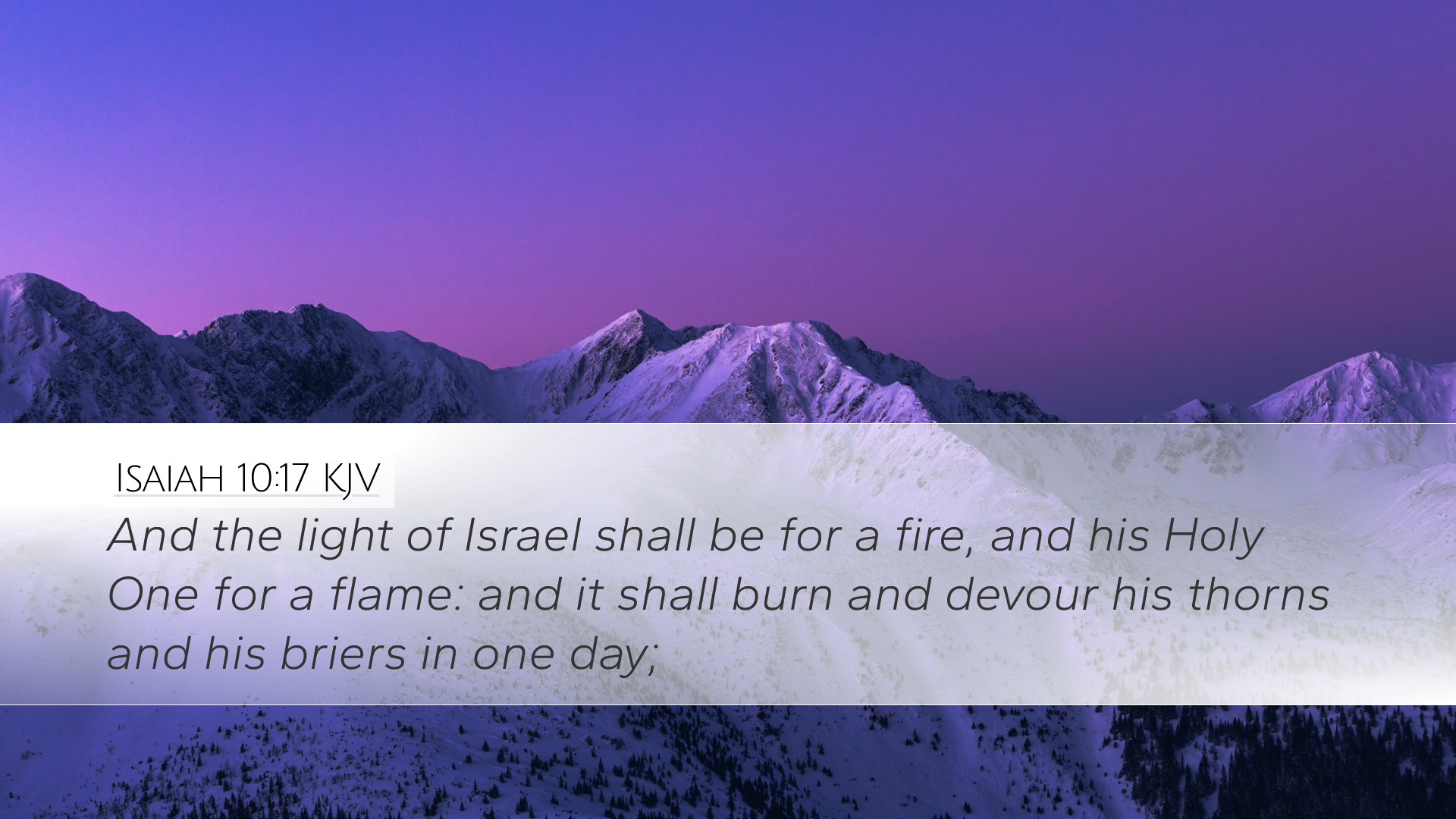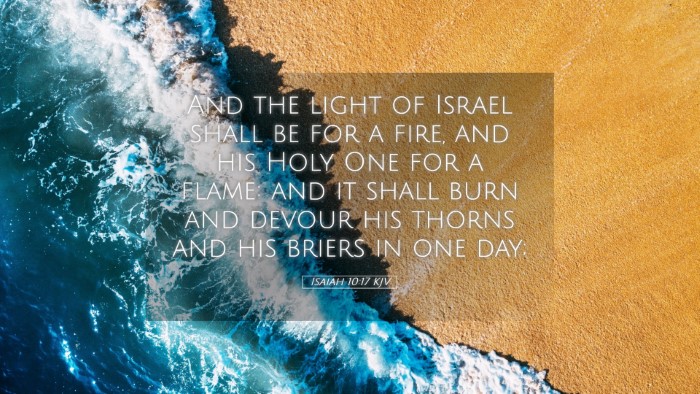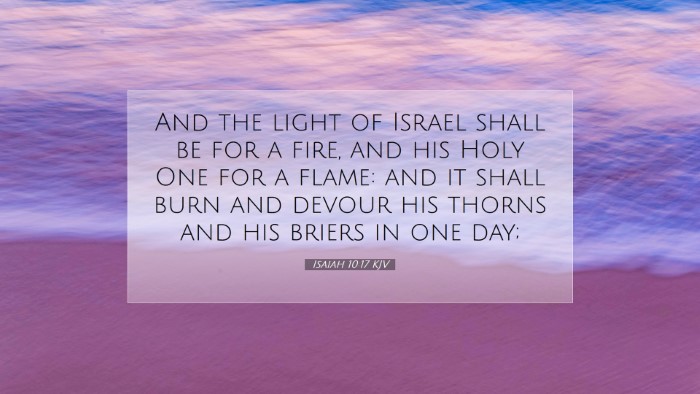Commentary on Isaiah 10:17
Isaiah 10:17 states: "And the Light of Israel will become a fire, and his Holy One a flame; and it will burn and devour his thorns and briers in one day." This verse serves as a powerful proclamation of God's consuming judgment contrasted with His saving grace. In examining this verse, we draw insights from several respected public domain commentaries, which provide a rich understanding for pastors, students, theologians, and scholars.
Understanding the Context
The prophetic book of Isaiah highlights God’s message to Israel, focusing on themes such as judgment, redemption, and hope. In the context of Isaiah 10, the Assyrian invasion serves as a backdrop for God’s judgement on both Israel and Assyria. This chapter exposes God's sovereign authority over nations and His ultimate purpose in purification and restoration.
Insights from Matthew Henry
Matthew Henry emphasizes the dual nature of God's character reflected in this verse. He notes that while God is a consuming fire to those who defy His commandments, He is also a source of light and hope for the faithful. Henry highlights the symbolism of light and fire in Scripture, representing purity, guidance, and divine presence.
- Fire of Judgment: Henry discusses how the depiction of God as fire indicates a powerful force of judgment that will consume the wicked, particularly represented by the thorns and briers, a metaphor for sin and rebellion.
- Hope for the Righteous: He contrasts this with the concept of light, which signifies guidance and hope for those who seek to follow God's ways amidst darkness.
Insights from Albert Barnes
Albert Barnes further elucidates the metaphorical language of this verse. He connects the thorns and briers to the challenges and afflictions that God’s people face. Barnes interprets the verse as a clear illustration of God's ability to provide salvation and deliverance:
- Divine Intervention: Barnes notes that God's intervention is both decisive and cleansing. The use of “one day” suggests the suddenness of God’s action against the enemies of His people.
- Symbolism of Thorns: The thorns and briers represent both spiritual and physical adversities that can hinder the progress of God's covenant community.
Insights from Adam Clarke
Adam Clarke offers a poignant view by focusing on the transformational aspect of God’s light and fire. He observes that God’s light is the ultimate source of spiritual enlightenment and strength:
- Light as a Guide: Clarke posits that the “Light of Israel” signifies divine guidance for the people of God. When they walk in His light, they are assured of protection and strength.
- Burning Away of Sin: He elaborates on the concept that the holy fire of God will purify the people by burning away sin, depicted by the thorns and briers, symbolizing a new hope and purity emerging from God’s judgment.
Theological Implications
This verse holds significant theological implications for understanding God’s character. It juxtaposes themes of judgment and salvation, embodying the essence of God’s holiness. The light and flame of God can be interpreted through both a comforting and challenging lens, encouraging believers to reflect on their lives in light of God’s Word.
1. The Holiness of God
The holiness of God mandates judgment upon sin, yet it also invites repentance and restoration. The fire may consume the briers of our lives, but it also purifies. This aspect of God’s nature compels believers to seek holiness and strive for spiritual growth.
2. The Call to Righteousness
Isaiah 10:17 presents a clarion call to both individuals and the community to evaluate their relationship with God. It emphasizes the imperative of pursuing righteousness, firmly holding onto the hope that God’s light offers.
3. God’s Sovereignty Over Nations
Through this verse, one can see a broader reflection of God's sovereignty over the affairs of nations. Even in judgment, His purpose is redemptive, illustrating the overarching narrative of Scripture that points toward reconciliation.
Conclusion
Isaiah 10:17 encapsulates profound truth for believers, reaffirming the reality of God’s judgment while simultaneously revealing His grace and mercy. The insights drawn from Matthew Henry, Albert Barnes, and Adam Clarke deepen our understanding, reminding us of the complexity of God’s relationship with His people. Believers are called to live in the light of His truth, allowing His fire to refine and transform them. In doing so, we can stand as witnesses of hope in a world often overshadowed by spiritual darkness.


